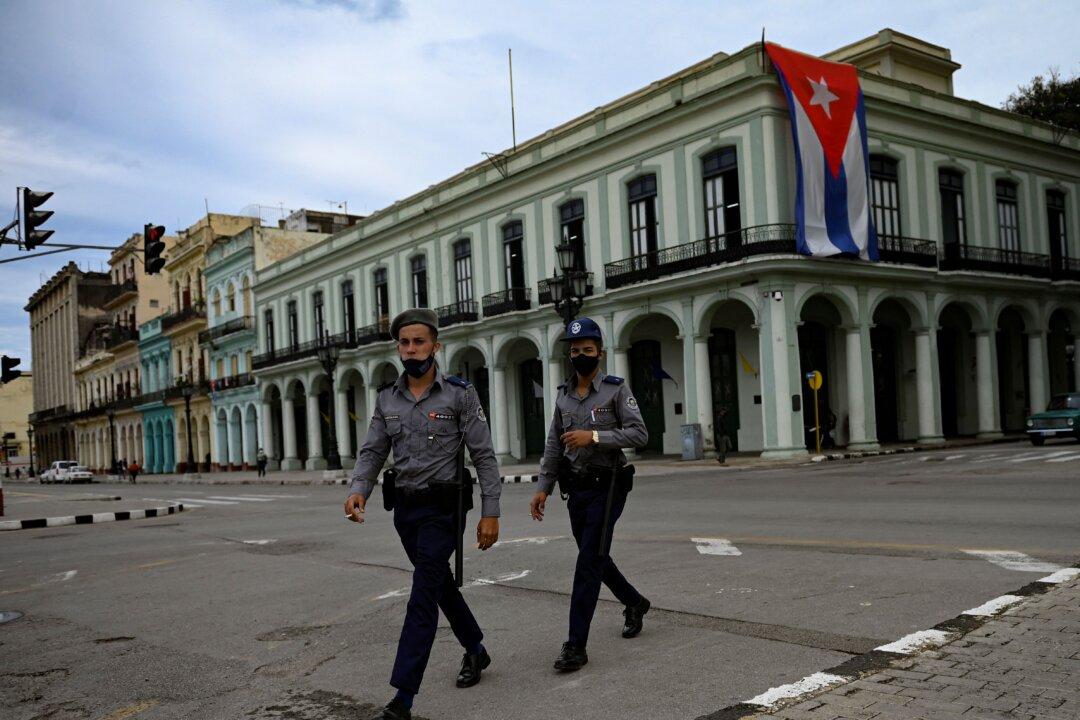Cuba’s ruling Communist Party appears to have largely shut down anti-regime protests planned for Monday, while detaining and intimidating a number of activists, according to multiple reports.
Thousands of people were expected to take to the streets across the country this week as part of the “Civic March for Change” to demand greater political freedom and the release of jailed political activists.




